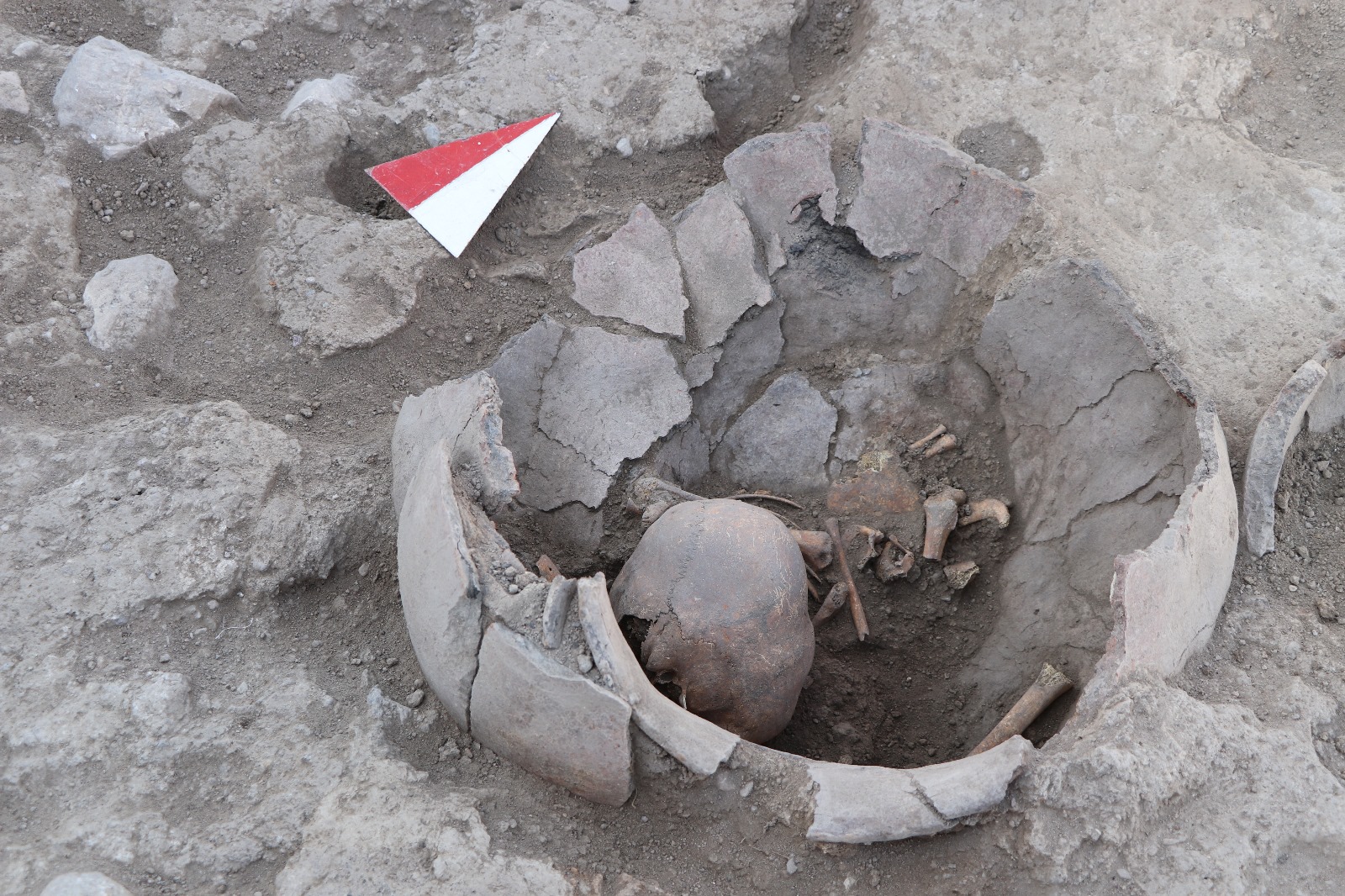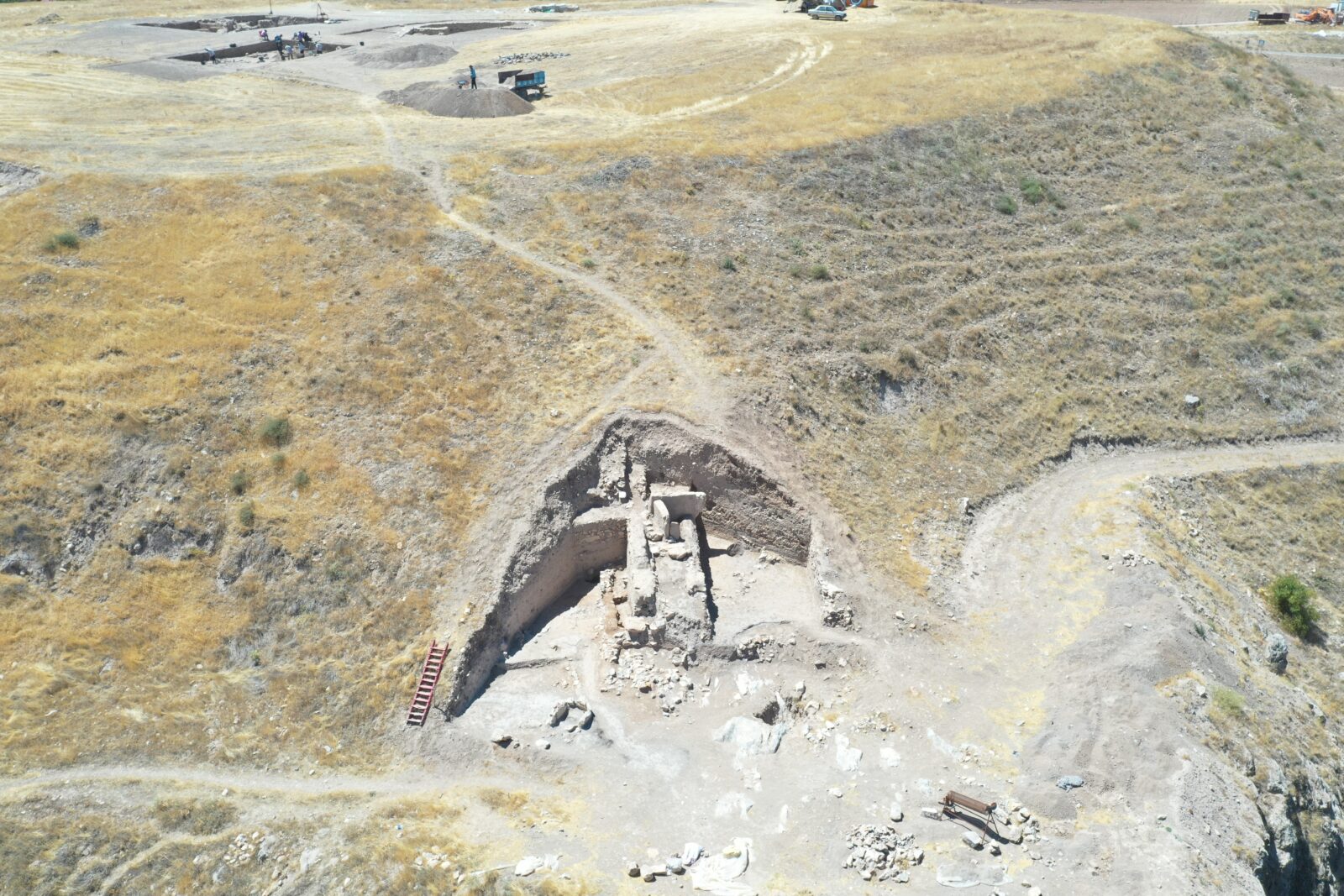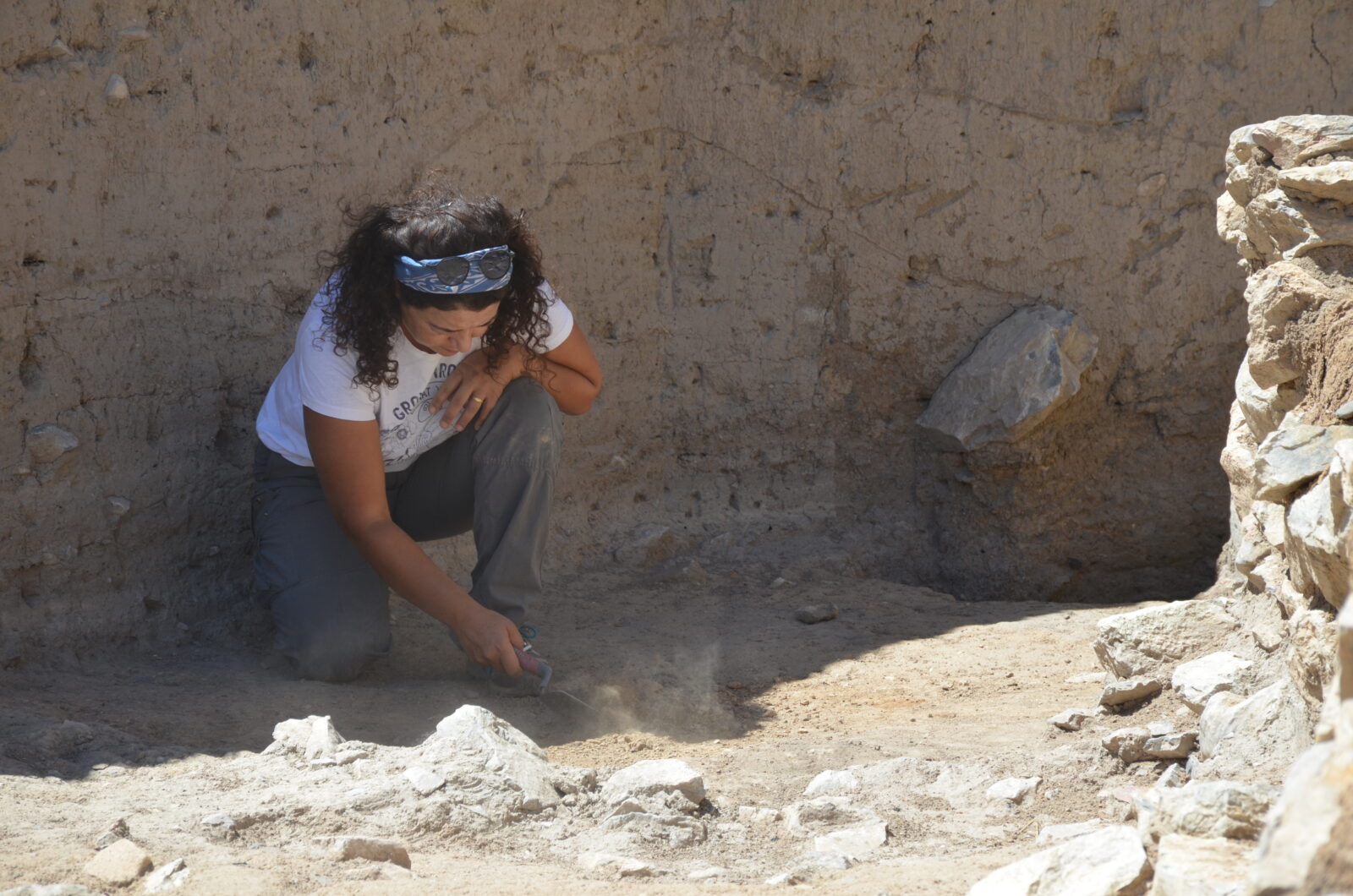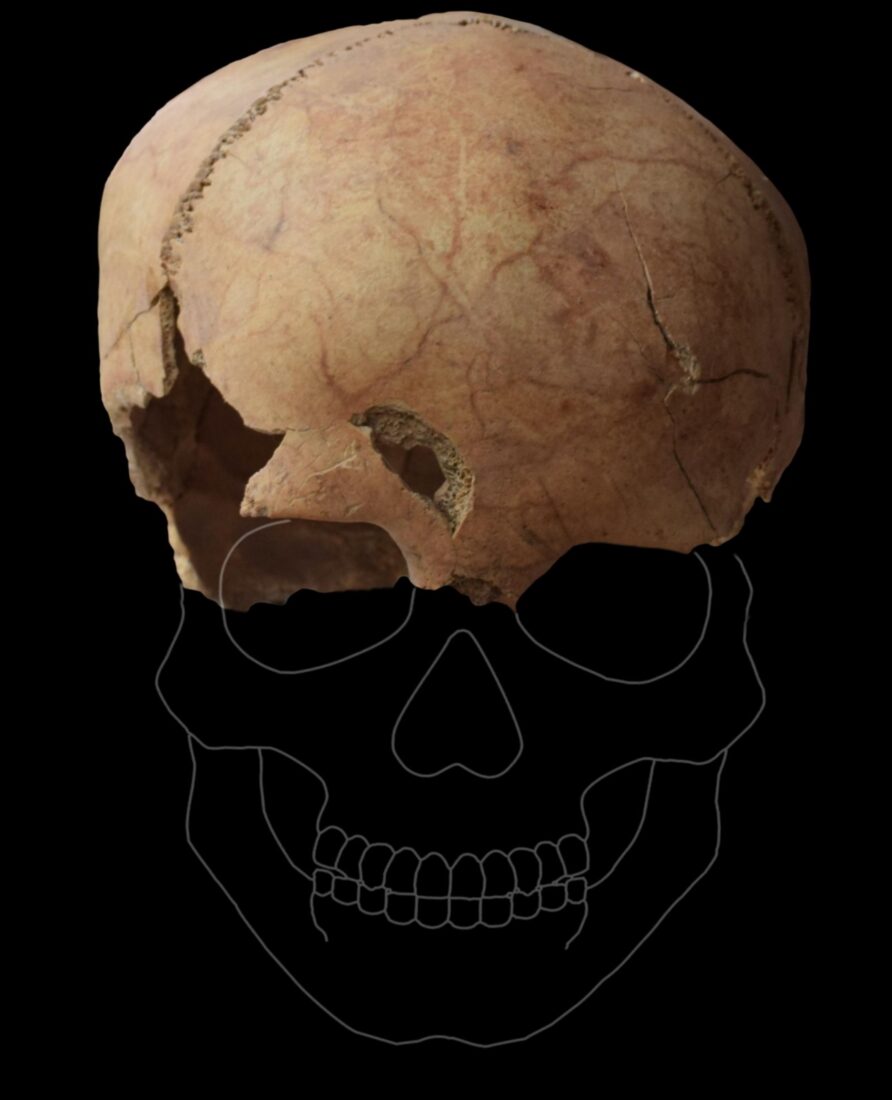
A remarkable archaeological find has emerged from the Yassihoyuk excavation site in Afsin, Kahramanmaras, where a 6,000-year-old shaped skull has been uncovered.
This discovery is part of ongoing excavations led by Elif Basturk from Ahi Evran University, supported by the Ministry of Culture and Tourism.
Elif Basturk emphasized the importance of Yassihoyuk because of its unique position in the region.
"Rare burial and cultural practices have been identified at the Tanir Yassihoyuk excavation site in Afsin, Kahramanmaras."

One notable practice is the conscious shaping of skulls, which began in Chalcolithic societies and has persisted to the present day, she added.
"This practice involves wrapping the skull of an infant in one or two cloth pieces to alter its shape," she explained.

The skull found at Tanir Yassihoyuk is believed to have been a status symbol for a selected individual, as such unique examples were reserved for special persons.
The burial’s distinctive characteristics, including its form, wooden ornaments, and pottery items, indicate that the individual interred here held a privileged status compared to others.

Additionally, another grave dating back to 4,000 B.C., belonging to an infant, revealed a necklace made from 820 beads.
Elif Basturk noted the significance of uncovering structures from the Late Neolithic period, dating back 6,000 years.

This layer also contained a skull buried beneath the floor of a home, linked to ancestral cult practices.
This discovery adds valuable insights into the cultural and burial practices of ancient societies in Türkiye and highlights the importance of ongoing archaeological research in revealing the region's rich history.